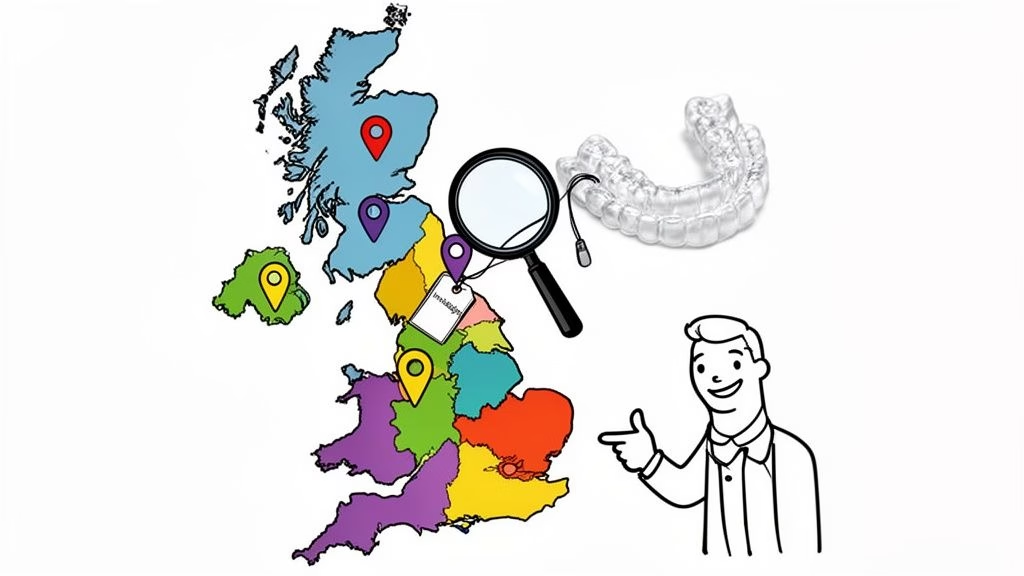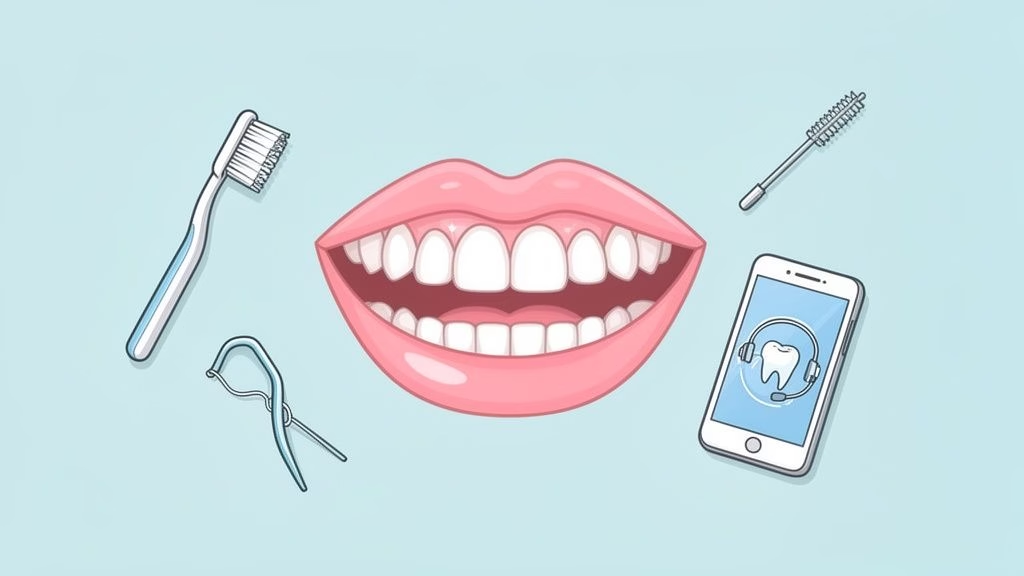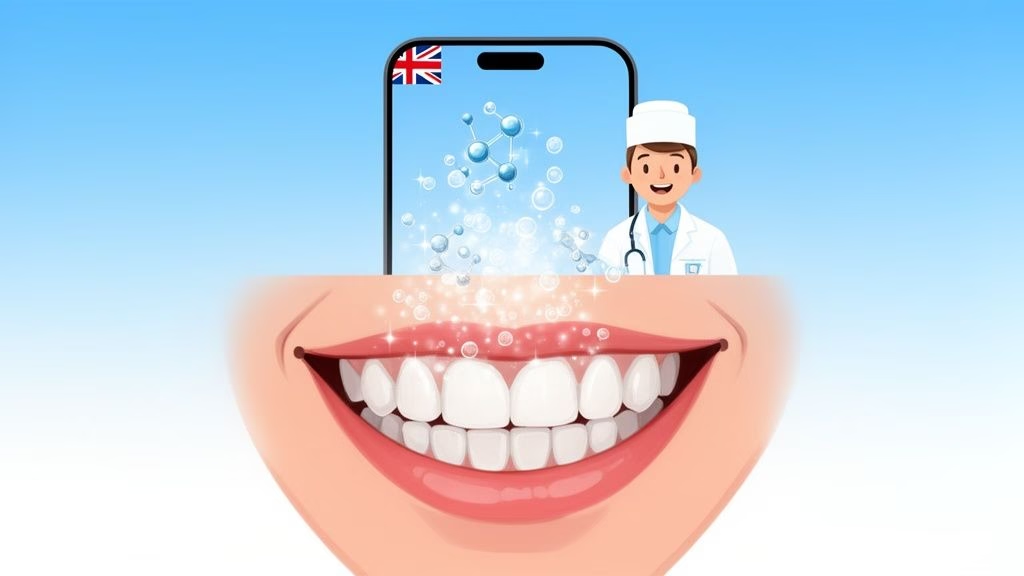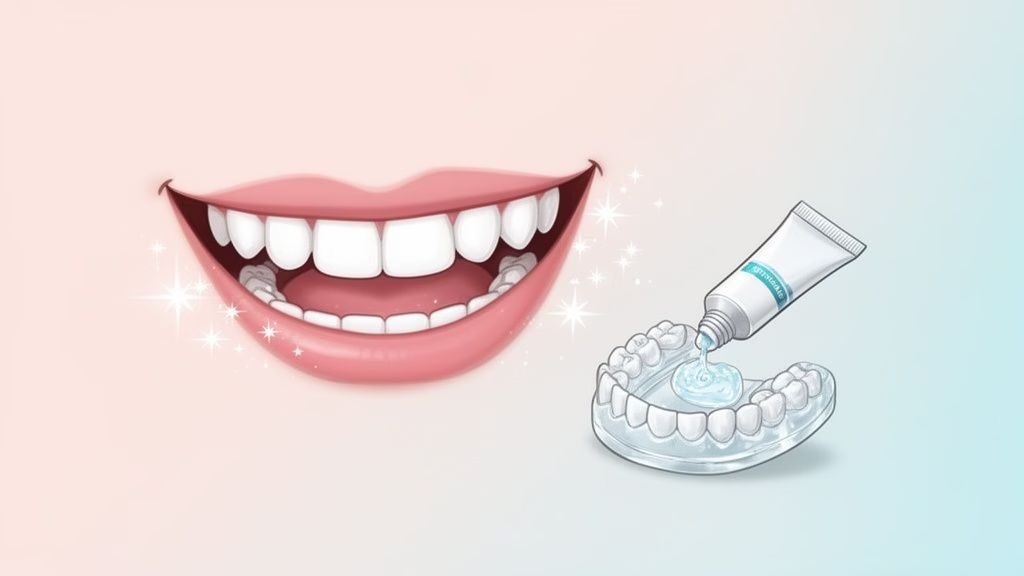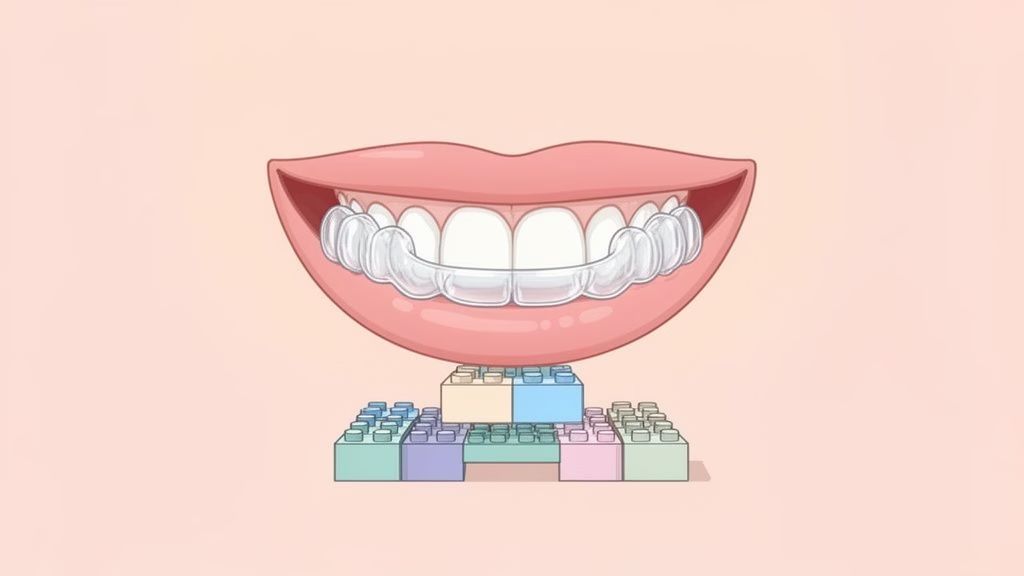Emergency Dental Extraction Cost in the UK: A Complete Guide to NHS & Private Fees

Understanding Emergency Dental Extraction Costs

When faced with a dental emergency requiring extraction, the immediate concern often isn’t just the pain – it’s also the cost. Whether through the NHS or private practice, understanding what you’ll need to pay helps you make better decisions during an already stressful time.
NHS Extraction Costs
Through the NHS, emergency tooth extractions are categorized as Band 2 treatments. This includes everything you need – the extraction procedure itself, any required X-rays, and follow-up care. In England, you’ll pay a set fee of £65.20. The costs vary across Scotland, Wales, and Northern Ireland due to different regional healthcare policies.
Private Extraction Costs
Private dental practices typically charge more than the NHS, with fees ranging from £100 to £500. The final cost depends largely on how complex your extraction needs to be. A simple extraction where the tooth is fully visible will cost less, while removing impacted wisdom teeth requires more time and expertise, pushing the price higher. For more detailed information about extraction costs, visit Cigna’s dental cost guide.
Additional Cost Factors to Consider
The basic extraction fee isn’t the only expense you might face. Here are the key additional costs to plan for:
- X-rays: While included in NHS treatment, private clinics often charge £20-£50 extra for X-rays
- Sedation: If you need sedation, expect to pay £50 to £200+ depending on the type used
- Emergency Appointment Fee: Out-of-hours emergency visits typically cost £50-£150 extra
- Aftercare Medication: You may need to pay for prescribed pain relief or antibiotics
- Follow-up Appointments: Additional check-ups might incur separate charges at private practices
By understanding these potential costs upfront, you can better prepare financially for your emergency dental extraction. Each option – NHS or private – comes with its own benefits and trade-offs, which we’ll explore in detail in the next section.
NHS vs Private Treatment: Making an Informed Choice
When you need an emergency tooth extraction, choosing between NHS and private dental care is an important decision. Both options have their benefits, but there are key differences in cost, waiting times, and services that can affect which choice is best for your specific needs.
Cost Comparison: NHS vs. Private
The price difference between NHS and private care is significant. NHS emergency extractions are classified as Band 2 treatment, with a set fee of £65.20 in England that covers the full procedure including X-rays and aftercare. However, these fees vary across Scotland, Wales, and Northern Ireland. Private dental extractions typically cost between £100 to £500, with basic extractions at the lower end and more complex cases like impacted wisdom teeth requiring higher fees.
Waiting Times and Availability
While NHS treatment offers cost savings, you may face longer waits for care. Getting an NHS emergency appointment can be difficult, especially outside normal hours, and wait times vary widely by location. Private practices usually offer more scheduling options, including same-day or next-day emergency slots. This quick access can be essential when dealing with severe tooth pain or infection.
Quality of Care Considerations
NHS and private dentists must follow the same professional standards to ensure safe, high-quality care. Private practices may provide additional benefits such as:
- More immediate appointment availability for urgent cases
- Extra time for consultation to discuss treatment options in detail
- Latest dental equipment and specialized services that may not be readily available through the NHS
Making the Right Choice for You
Your decision between NHS and private care should consider your personal situation:
- If cost is your main concern, NHS treatment provides affordable care if you can manage potential wait times
- If you need quick treatment and can handle higher costs, private care offers faster access
- For complex cases needing specialized care, private practices may be better equipped
For example, someone with severe wisdom tooth pain might opt for private treatment to get immediate relief. Meanwhile, a patient with a simpler extraction and budget constraints may find NHS care more suitable. The key is balancing urgency, cost, and care requirements to get appropriate treatment when you need it.
Recovery Process and Hidden Cost Considerations

Getting an emergency dental extraction is just the first step – the recovery process that follows is equally important but often overlooked. Understanding what to expect during healing and being prepared for potential additional costs can make a big difference in your recovery journey.
Recovery Timeline and Health Considerations
Most patients need 2 to 3 days for their initial recovery after an emergency extraction. This is why getting prompt care is so critical – when treatments like root canals are no longer an option, extraction becomes necessary to stop complications from getting worse. For more details about emergency dental services, learn more about treatment options and costs here.
Potential Complications and Their Costs
While extractions usually go smoothly, a few issues can pop up during recovery:
- Dry Socket: If the protective blood clot comes loose, this painful condition may develop. Treatment costs about £30 to £50.
- Infection: You might need antibiotics and extra dental visits, adding £40 or more to your total cost.
Regular checkups and following aftercare instructions help avoid these problems and keep costs down.
Essential Aftercare Products and Practices
Taking good care of the extraction site requires a few key items:
- Pain Relief: Standard over-the-counter or prescribed pain medication for discomfort
- Cold Compresses: Apply ice packs in 15-minute intervals to reduce swelling
- Oral Rinse: Simple salt water solution to keep the area clean and support healing
Time Off Work and Financial Implications
You may need to take time away from work, especially if your job involves physical activity. With the UK average hourly wage at £14.10, missing work can impact your budget. If possible, try scheduling the extraction when taking time off won’t be as disruptive to your work schedule.
Costs of Additional Treatments
Some patients need follow-up treatments after their extraction:
| Treatment | Estimated Cost (NHS) | Estimated Cost (Private) |
|---|---|---|
| Dental Implants | N/A | £2,000 to £2,500 |
| Artificial Crowns | Band 3: £282.80 | £350 to £600 |
Planning ahead for these potential expenses and taking recovery seriously helps protect both your health and your wallet. Good preparation means you’ll be ready to handle any extra costs that come up during healing.
Managing Costs: Payment Solutions and Financial Support
Getting an emergency dental extraction can be expensive, but several options exist to help reduce the financial strain. Understanding both NHS and private payment choices helps UK residents find the most affordable solution for their needs.
NHS Financial Support
The NHS provides valuable assistance for people who need affordable dental care:
- HC2 Certificates: Cover all NHS dental treatment costs, including emergency extractions, for low-income individuals
- NHS Prescription Exemptions: Offer free prescriptions along with dental coverage for those who qualify
Check your eligibility and apply for HC2 certificates through the NHS website.
Private Payment Solutions
If you need private dental care, several approaches can make the costs more manageable:
- Insurance Claims: Check your dental insurance policy to understand what emergency extractions are covered and any requirements
- Payment Plans: Most dental offices let you split the total cost into smaller monthly payments
Table: Comparing NHS and Private Support Options
| Financial Parameter | NHS | Private |
|---|---|---|
| Initial Coverage | Low-income exemptions | Insurance claim options |
| Payment Structure | Set fee (Band 2) | Flexible installment plans |
| Additional Benefits | Prescription support | Possibly faster service |
Alternative Financial Assistance
Other helpful resources exist for those needing extra financial support:
- Charitable Organizations: Groups like Dentaid sometimes provide reduced-cost treatments to people facing financial hardship
- Dental Schools: Offer lower-priced services through supervised student clinics – appointments take longer but cost less
Negotiation Strategies
Don’t forget to discuss costs directly with your dental provider before treatment:
- Ask for Discounts: Some clinics reduce fees for upfront payment or new patients
- Inquire About Bundled Services: Multiple treatments may cost less when combined
With good planning and open communication about finances, emergency dental work can stay affordable. Focus on finding the right mix of payment options for your situation to manage the emergency dental extraction cost effectively.
Preventive Strategies for Long-Term Cost Savings
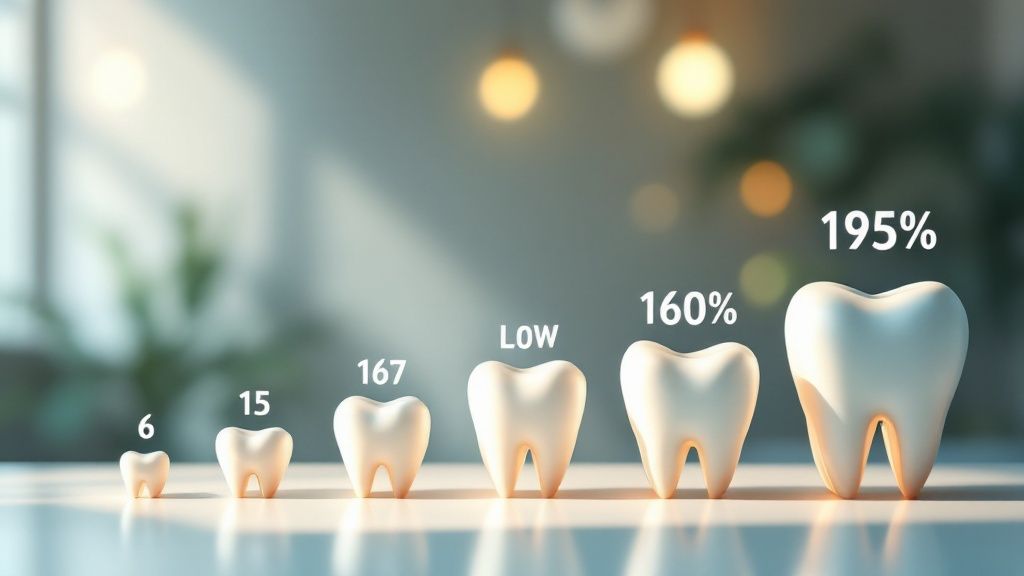
Taking good care of your teeth is the best way to avoid expensive emergency dental procedures. By making smart choices about your oral health today, you can prevent many problems and save money in the long run.
The Importance of Routine Dental Check-Ups
Regular visits to your dentist are essential for keeping your teeth and gums healthy. During these appointments, your dentist can spot small issues before they become major problems requiring costly treatments.
The key benefits include:
- Professional Cleanings: Remove built-up plaque and tartar that regular brushing can’t reach
- Early Detection: Find and treat decay, gum disease, and other issues in their early stages when treatment is simpler and less expensive
Modern Preventive Technologies
New dental tools make it easier to protect your teeth:
- Digital X-rays: Show detailed views of your teeth with less radiation exposure
- Protective Treatments: Special sealants and fluoride applications help strengthen tooth enamel against decay
Using these advances as part of your regular dental care can help you avoid emergency procedures and their high costs.
Effective Home Care Routines
What you do at home matters just as much as dental visits:
- Daily Oral Care: Brush thoroughly with fluoride toothpaste and floss between all teeth
- Smart Choices: Cut back on sugary foods and drinks, and avoid tobacco products that harm oral health
Following these basic habits helps create strong protection against dental emergencies.
Recognizing Early Warning Signs
Knowing what to watch for can prevent serious problems:
- Tooth Sensitivity: May signal wearing enamel or cavities forming
- Bleeding Gums: Often the first sign of gum disease that needs attention
Creating a Dental Care Budget
Plan ahead for both routine care and possible emergencies:
| Treatment Type | Estimated Cost (NHS) | Recommended Frequency |
|---|---|---|
| Routine Check-Up | Band 1: £25.80 | Every 6 months |
| Basic Cleaning | Included in Check-Up | As needed |
Making preventive care a priority helps protect both your oral health and your wallet. Smart planning and good habits now can prevent costly emergency treatments later. For extra support, Toothfairy offers 24/7 virtual dental advice and consultations to help you stay on track with prevention.
Accessing Emergency Dental Services: A Strategic Approach

When a dental emergency strikes, knowing how to quickly find proper care makes all the difference. This guide walks you through the key steps to access both NHS and private emergency dental services while managing costs effectively. Understanding your options helps ensure you get the right treatment when you need it most, including handling emergency dental extraction costs.
Locating NHS Emergency Dental Services
The NHS offers several reliable paths to emergency dental care. Here are the main ways to access these services:
- Your Regular Dentist: If you’re already registered with an NHS dentist, this is often the fastest option since many practices keep slots open for emergencies
- NHS 111 Service: Call 111 to speak with healthcare advisors who can direct you to nearby emergency dental services and provide immediate advice for managing symptoms
- Online NHS Search: Use the NHS website’s dental service directory to find emergency care providers in your area, with filters to show only emergency services
Evaluating Private Dental Practices
When NHS wait times are too long or you prefer private care, take these factors into account:
- Clear Fee Structures: Good private practices openly display their emergency treatment costs upfront
- Patient Reviews: Check recent reviews to learn about actual patient experiences with emergency care
- Specialization and Experience: For complex cases, consider dentists with specific emergency care expertise
Communicating Effectively During a Dental Emergency
Make your emergency call count by being prepared with key information:
- Describe Your Symptoms: Be specific about pain levels, when the problem started, and what makes it better or worse
- Medical History: Have your health conditions, allergies, and current medications ready to share
- Insurance Details: Keep insurance information handy if you have private dental coverage
Preparing for Your Emergency Appointment
Before heading to your appointment, gather these essentials:
- Photo ID: Bring valid identification
- NHS Number: Have this ready if using NHS services
- Medical History Summary: Prepare a brief list of health conditions and medications
- Payment Method: Know the expected costs and bring appropriate payment
Understanding Emergency Triage and Out-of-Hours Care
Emergency dental services use a triage system to treat the most serious cases first. For instance, severe infections get priority over minor chips or cracks. Be aware that out-of-hours care typically costs more than regular appointments. When possible, seeking treatment during normal business hours can help reduce expenses.
For extra support, consider downloading the Toothfairy app for 24/7 virtual dental guidance. This tool helps you make informed decisions about urgent dental issues and connects you with qualified professionals when needed.
Last updated on February 3, 2025

Kian Dhinsa
Dr. Kian Dhinsa is a Birmingham-based dental practitioner with a special interest in orthodontics, general dentistry, and and surgery.
He has been recipient of numerous awards, for dental care and digital innovation.
Kian Dhinsa
Dr. Kian Dhinsa is a Birmingham-based dental practitioner with a special interest in orthodontics, general dentistry, and and surgery. He has been recipient of numerous awards, for dental care and digital innovation.
